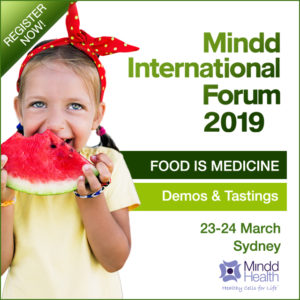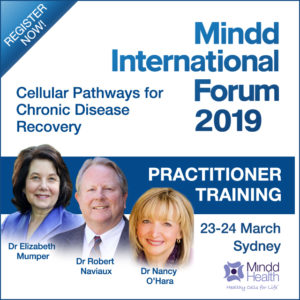Knowing the importance of Microchimerism in Pregnancy is vital for any mother to be

Leah Hechtman will be a speaker at the Mindd Forum 2019. She is the director of The Natural Health and Fertility Centre in Sydney and has been in practice for over 20 years. She specializes in fertility, pregnancy and reproductive healthcare for men and women. Leah has completed extensive advanced training and is currently completing her Ph.D. through the School of Women’s and Children’s Health (Faculty of Medicine [UNSW]).
Leah will be speaking on the topics of Microchimerism, mRNA and Parental Wisdom, which is the understanding of how pregnancy can change the health of a mother in unintended ways. Leah’s expertise extends to how we can influence unique genetic pathways to improve the health of future generations. She will be discussing the latest research regarding these fascinating areas at the forum.
What is Microchimerism?
Microchimerism is the presence of two genetic cells that were derived separately. This can be due to the transfer of cells between a mother and fetus or even between twins. When microchimerism is present, the immune response to the exchange of these fetal cells changes basic physiology in the mother. These cells are left behind in the mother and can either be harmful or helpful depending on many variables. Falling pregnant and maintaining a pregnancy requires reasonably good health and pregnancy can sometimes have consequences for women if they are not in optimal health. Women who experience microchimerism due to birth can have these cells persist many years after childbirth.
Is Pregnancy the Only Way Microchimerism Can Exist?
Research shows that miscarriage or an induced abortion can also produce the condition, as well as being pregnant to twins, as the fetuses can transfer cells between each other. Research is currently evaluating the likelihood of whether an older sibling/previous pregnancy can pass cells to a current fetus of a different pregnancy.
Are There Health Problems Associated with Microchimerism?
The question as to whether genetically different cells can affect long-term health is a valid one since they can persist long term. Microchimerism has been identified in multiple tissues in humans and not just in disease states. Normal, healthy tissue can have these foreign cells present. Research is currently assessing whether this condition has a positive, neutral or negative effect on the host. Since there are many variables, it is not a straightforward conclusion. Things such as the origin of the cells, how they were acquired, the type of cells, the duration of time since the acquisition of the cells and the age of the host are all variable factors affecting the outcome of this conclusion.
Potential Benefits Associated with Microchimerism
While the primary focus area of microchimerism has been centered on its potential to cause harm, there is also a more positive outlook beginning to surface. It has been hypothesized that microchimerism fetal cells may have the ability to provide repair processes within maternal tissue. This was initially seen in the capability of mammals to save their mother’s lives by providing cells that were repairing tissue, including bone marrow, to replace dysfunctional cells.
Microchimerism and Autoimmunity
The critical area research is currently focusing on is microchimerism and autoimmune disease. It is presently known that microchimerism can be found in the immune cells of the offspring, specifically in the T and B cells, natural killer cells and macrophages. If it is determined to be adverse to health, it is possible it could cause immune-related conditions for future generations.
More specific information on Microchimerism (part of both the Public Integrative Health stream and the Practitioner stream) will be presented at the Mindd Forum, where you will learn more about this fascinating topic and its potential to affect future generations.
You can see the schedule of the 2019 Mindd Forum here…
References
- https://www.medicinenet.com/script/main/art.asp?articlekey=25263
- https://www.ncbi.nlm.nih.gov/pmc/articles/PMC3516290/
- https://www.ncbi.nlm.nih.gov/pubmed/12952135
- https://www.ncbi.nlm.nih.gov/pubmed/19924635
- https://www.ncbi.nlm.nih.gov/pubmed/8570620/
- https://www.ncbi.nlm.nih.gov/pubmed/15022334/
[/vc_column_text][/vc_column][/vc_row]







